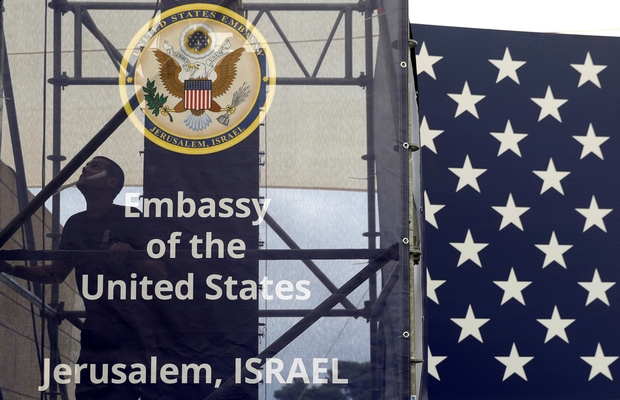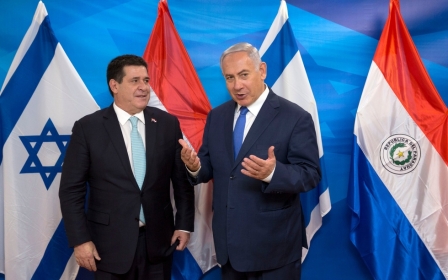US shutting down consulate for Palestinians in Jerusalem

The United States has decided to close its consulate for Palestinians in Jerusalem, the State Department announced on Thursday, potentially further downgrading relations between the US and the Palestinian government.
After the controversial US embassy move to Jerusalem is completed in May 2019, the former consulate in Jerusalem, which had been tasked with relations with Palestinians, will operate as the Palestinian Affairs Unit within the embassy.
Secretary of State Mike Pompeo described the move in his statement as a merger of the new embassy and existing consulate in Jerusalem, and insisted it did not signal a change in policy towards Palestinians.
However, the announcement follows the US closure of the Palestinian Authority's mission in Washington DC in September.
"The United States continues to take no position on final status issues, including boundaries or borders. The specific boundaries of Israeli sovereignty in Jerusalem are subject to final status negotiations between the parties," the statement said, apparently to assuage Palestinian concerns about the change.
Relations between the sides have been tense since President Donald Trump decided to move the US embassy from Tel Aviv to Jerusalem, recognising the city as Israel's capital despite its status being disputed by the international community and Palestinian claims that East Jerusalem should be the capital of their own state as part of a negotiated two-state solution.
Saeb Erekat, secretary general of the Palestine Liberation Organisation, claimed the decision to close the consulate was proof Trump's administration "has fully endorsed the Israeli narrative".
"[The] Trump administration is making clear that it is working together with the Israeli government to impose Greater Israel rather than the two-state solution on the '67 border," he said in a statement. "The Trump administration is part of the problem, not part of the solution."
Trump's embassy move represented a significant break in US policy on the status of Jerusalem and the Palestinians have argued it endangered a two-state peace solution.
Australian Prime Minister Scott Morrison reportedly told Israeli Prime Minister Benjamin Netanyahu on Monday that he had been considering doing the same - a potential move which, if enacted, would make Australia the largest country since the US to recognise Jerusalem as Israel's capital.
Stay informed with MEE's newsletters
Sign up to get the latest alerts, insights and analysis, starting with Turkey Unpacked
Middle East Eye delivers independent and unrivalled coverage and analysis of the Middle East, North Africa and beyond. To learn more about republishing this content and the associated fees, please fill out this form. More about MEE can be found here.




